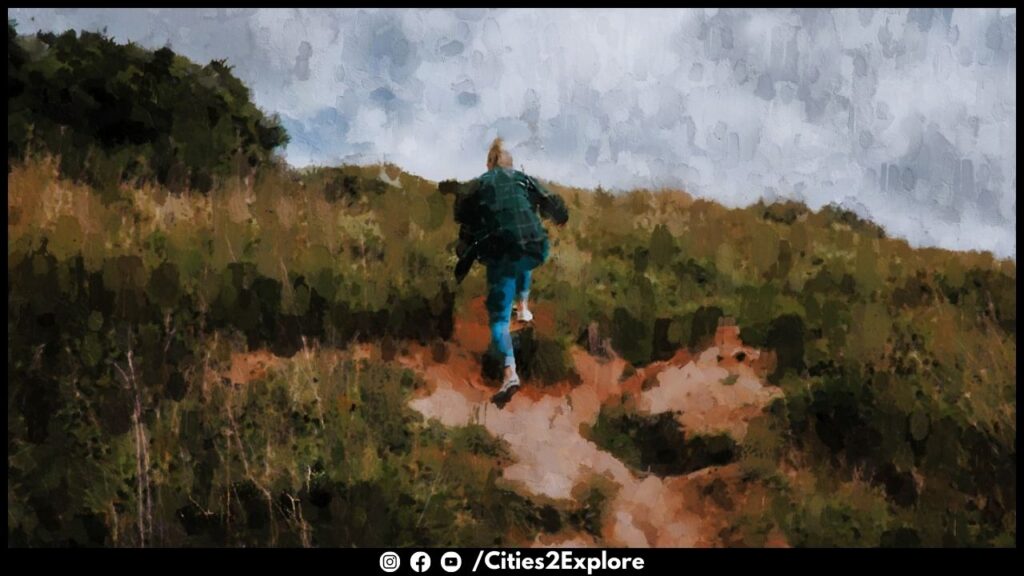When it comes to traveling alone, ensuring personal safety should be your top priority. Whether you’re embarking on a thrilling solo adventure or a business trip, being aware of potential risks and taking necessary precautions can make all the difference. In this comprehensive guide, we will delve into every aspect of staying safe while traveling alone, equipping you with the knowledge and strategies to navigate any situation. Join us as we explore the importance of travel safety, share compelling statistics, and reveal inspiring stories that underscore the need for proactive measures.

I. Pre-Trip Preparation
Before setting off on your solo journey, thorough pre-trip preparation is crucial to ensure a safe and enjoyable experience.
A. Researching your destination
Researching your destination thoroughly is the first step towards staying safe while traveling alone. By gathering information about local laws, customs, and regulations, you will be well-prepared to respect and abide by them. Additionally, identifying safe neighborhoods and areas to stay in will provide you with peace of mind and a solid foundation for your travels. Understanding potential risks and common scams prevalent in your chosen destination will empower you to make informed decisions and avoid falling victim to fraud or unsafe situations.
B. Informing others about your travel plans
Sharing your detailed itinerary with trusted family members or friends is essential for your safety. By keeping them informed about your travel plans, including your destinations, accommodation details, and modes of transportation, you create a safety net. Provide them with essential contact information and emergency numbers, ensuring they can reach you or assist you in case of any unforeseen circumstances. Regularly updating them about your whereabouts during your trip is also advisable.
C. Travel insurance and health precautions
Obtaining suitable travel insurance coverage is a critical aspect of staying safe while traveling alone. Evaluate different insurance options, considering factors such as medical coverage, trip cancellation protection, and emergency evacuation services. Be sure to understand the terms and conditions of your policy to ensure it aligns with your needs. Additionally, research the necessary vaccinations or medications for your specific destination and consult with a healthcare professional. Carrying copies of important medical documents, including prescriptions and allergy information, will facilitate prompt and efficient medical care if required.

II. Personal Safety Measures
Ensuring personal safety while traveling alone involves adopting proactive measures and maintaining situational awareness throughout your journey.
A. Personal security and awareness
Maintaining a high level of personal security and awareness is crucial in safeguarding yourself while traveling alone. Cultivate a sense of situational awareness by observing your surroundings, staying alert to any potential threats or suspicious activities. Trusting your instincts is key – if something feels off or unsafe, it’s better to err on the side of caution. Avoid risky situations, especially in unfamiliar environments, and be mindful of your personal boundaries and comfort levels.
B. Securing your belongings
Protecting your belongings is essential to prevent theft and ensure a worry-free travel experience. Invest in a secure bag or backpack with anti-theft features, such as slash-resistant material and lockable zippers. Utilize locks and secure your zippers to deter pickpockets or unauthorized access. Consider carrying a money belt or hidden pouch to safeguard your valuables, and keep important documents, such as your passport and travel insurance details, in a separate and secure location.
C. Managing money and financial safety
Implementing smart financial practices while traveling alone is essential for your safety. Carry a limited amount of cash and rely on alternative payment methods, such as credit cards or digital wallets, wherever possible. When using ATMs or credit cards, prioritize safety by selecting reputable and secure machines, preferably located in well-lit and populated areas. Keep copies of important financial documents, such as your passport and insurance details, securely stored in a separate location, ensuring access to crucial information in case of loss or theft.
D. Safe transportation practices
Traveling alone often involves utilizing various modes of transportation. Research reliable transportation options at your destination, including reputable taxi services or licensed ride-sharing platforms. Familiarize yourself with local public transportation routes, schedules, and safety guidelines to confidently navigate the transportation system. Opt for well-lit and populated transportation hubs, and if you feel uncomfortable or unsafe, consider using alternative options or requesting assistance from reputable sources.
III. Accommodation Safety
Selecting safe accommodations and implementing security measures within your chosen lodging will significantly contribute to your overall safety while traveling alone.
A. Choosing safe accommodations
When booking accommodations for your solo journey, prioritize safety. Conduct thorough research to identify reputable hotels, hostels, or other lodging options known for prioritizing guest safety. Read reviews and check feedback from fellow travelers, paying close attention to comments regarding safety features and previous guests’ experiences. Consider factors such as location, security measures, and the presence of on-site security personnel when making your accommodation selection.
B. Room safety and security
Upon arrival at your accommodation, take necessary precautions to ensure room safety and security. Before entering your room, inspect the door and surrounding area. Check for safety features such as peepholes, deadbolts, and sturdy locks. Report any deficiencies to the front desk and request a room change if necessary. Enhance room security by using door stoppers or alarms, providing an additional layer of protection against unauthorized entry. Utilize the room safe or hotel lockers to store your valuables securely.

Conclusion
Traveling alone can be an incredibly rewarding experience, but it’s essential to prioritize your safety throughout your journey. By following the tips and strategies outlined in this comprehensive guide, you’ll equip yourself with the knowledge and tools needed to stay safe while traveling alone. Remember, personal safety starts with thorough pre-trip preparation, maintaining situational awareness, securing your belongings, practicing smart financial habits, and selecting safe accommodations. So go forth and explore the world with confidence, knowing that you have taken proactive measures to ensure your well-being while traveling solo. Safe travels!
Read other interesting articles:
- 11 Best Places to visit in Varanasi
- Tungnath Temple: Journey to the Highest Shiva Temple on Earth
- Exploring Majnu Ka Tila: A Journey into the Heart of Tibetan Culture
- 600 Millions Year Old Ramgarh Crater: A Window into Earth’s Geological History
- 11 Travel Essentials List You Need on Your Trip
- 7 Best Places to visit in Diwali Vacation in India
- Patna Museum : Things to Know Before Visiting
- Golghar Patna – Facts, History, Timings
- 11 Best Places To Visit in Patna
- 9 Best places to visit in Ranchi | Ranchi Tourist Attractions
- 11 Best Places to Visit in Rishikesh – Exploring City of Yoga
- Radhanagar Beach: Activities, Timings, Images & More
- Experience Royalty on Rails: Maharajas Express – The Luxury Train in India
- 11 Places to Visit in India in June: Beat the Heat and Explore!
- Buddha Smriti Park Patna: Find Inner Peace at the Heart of the City
- Explore the Pyramids of Giza: The Last Surviving Seven Wonders
- Exploring the Benefits of Traveling: Solo, Group, Health, and Educational Benefits
- Lepakshi Temple: A Jewel of Andhra Pradesh’s Heritage
- World’s Most Unique Village of Twins, Kodinhi – The Unexplained Mystery | Mystery Of Twins Village
- Murud Janjira Fort History, Images, Timing, Tourism Guide
- Yamuna Biodiversity Park: Where Nature’s Beauty Flourishes





